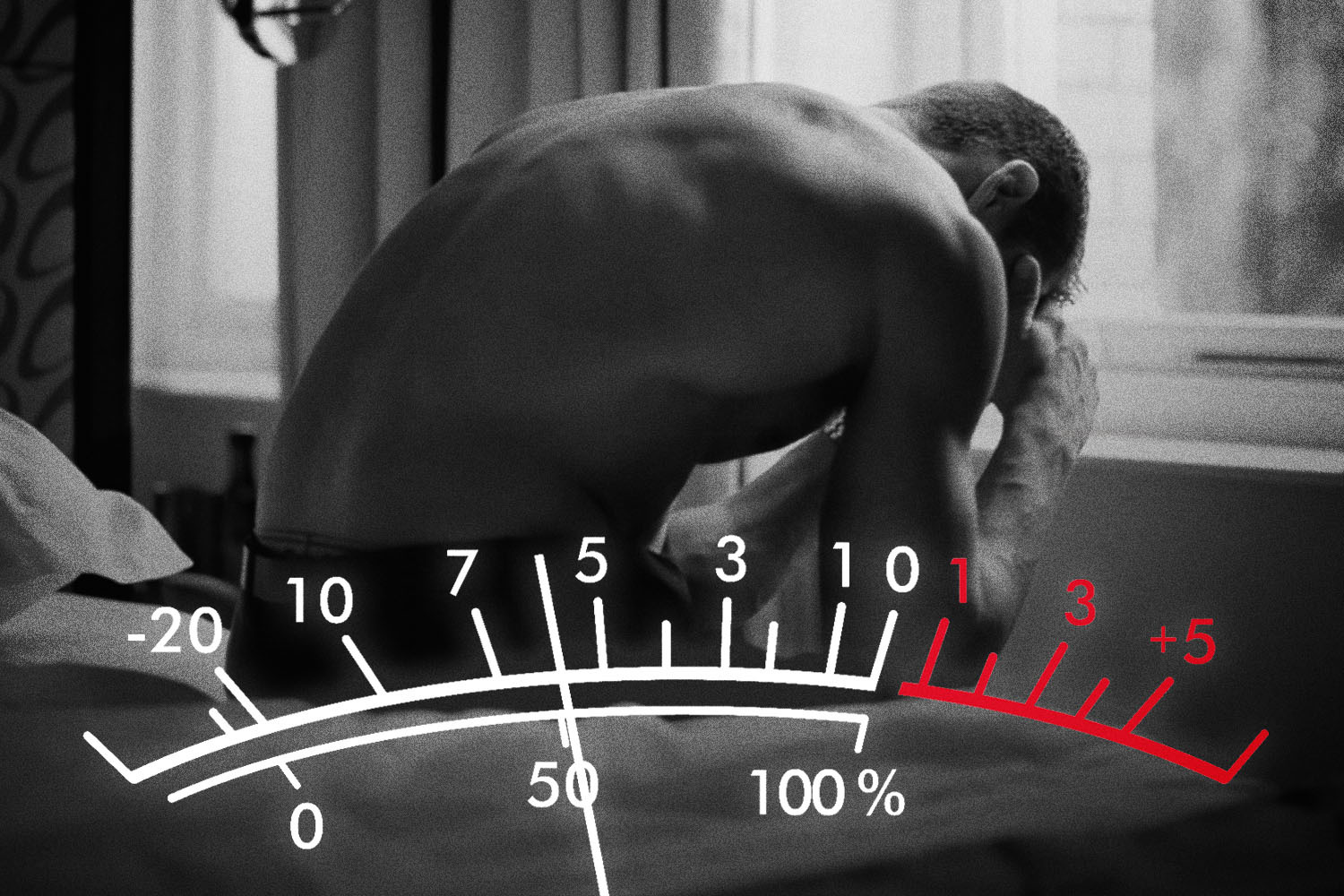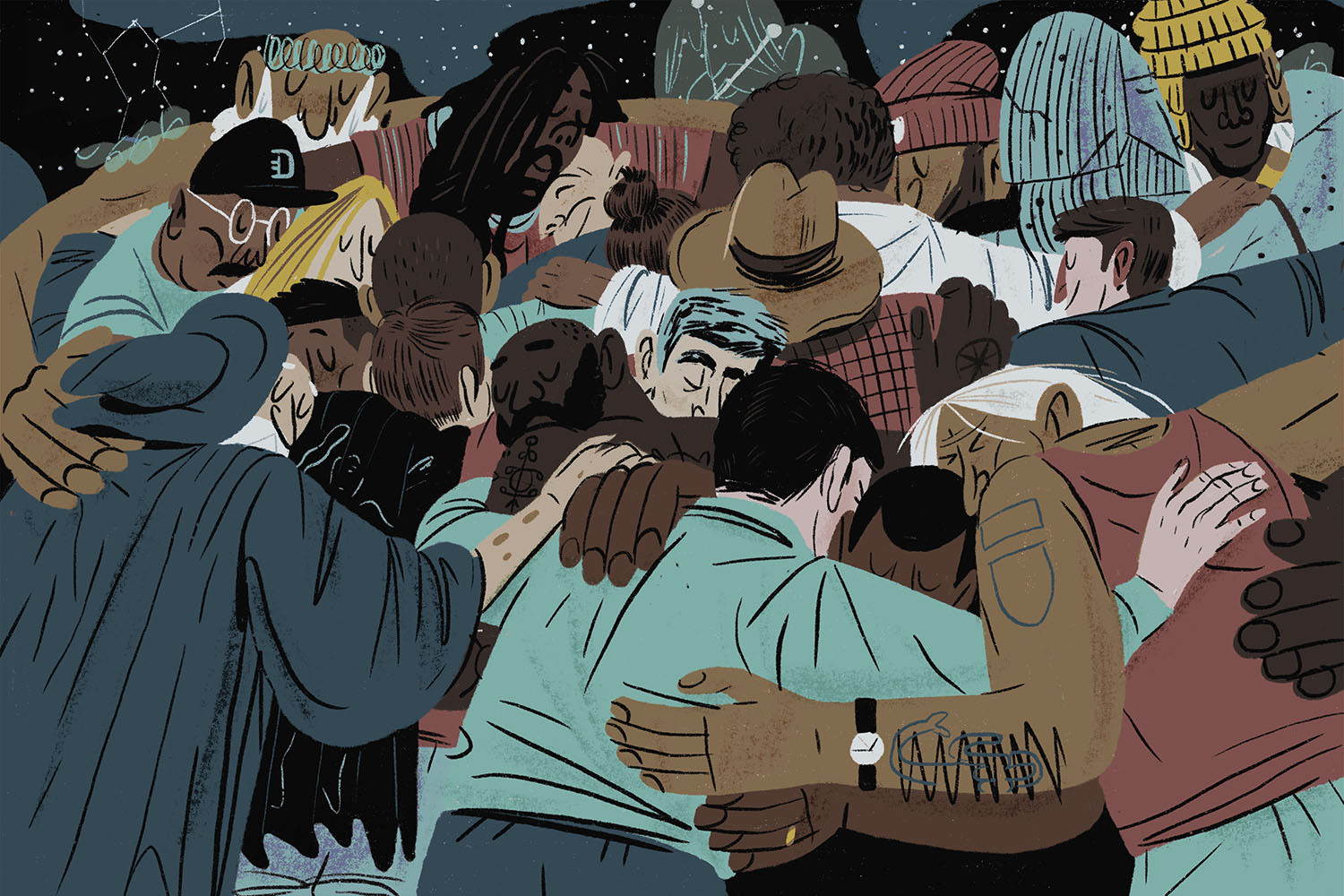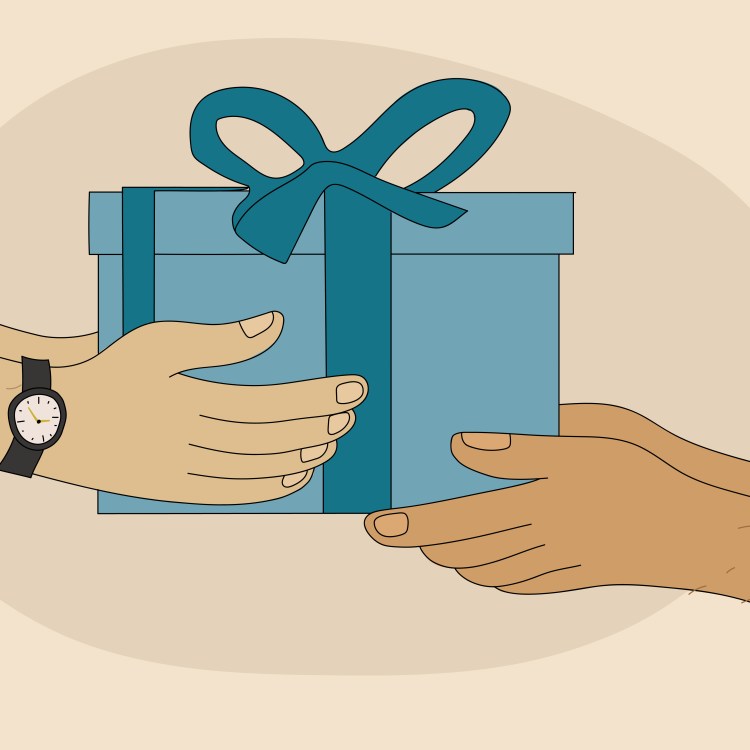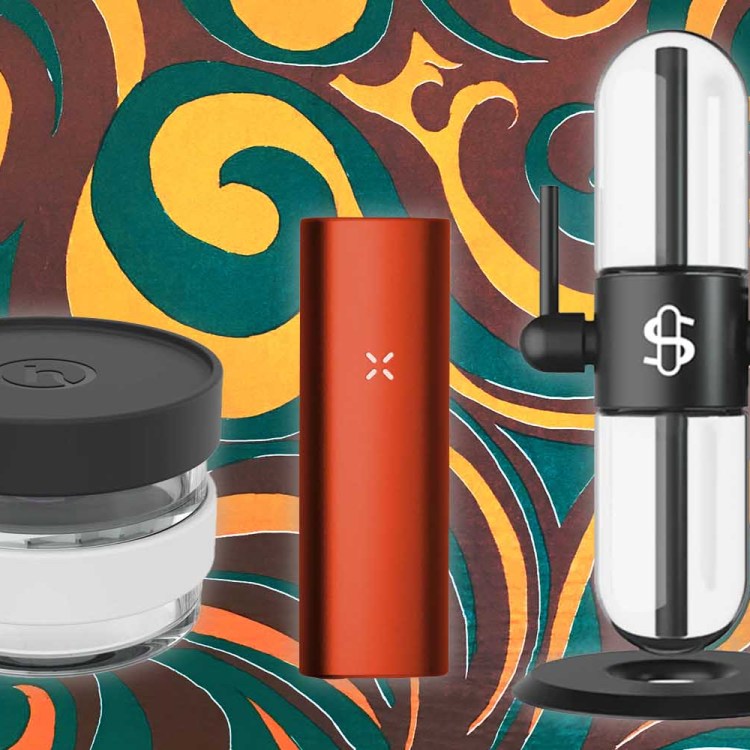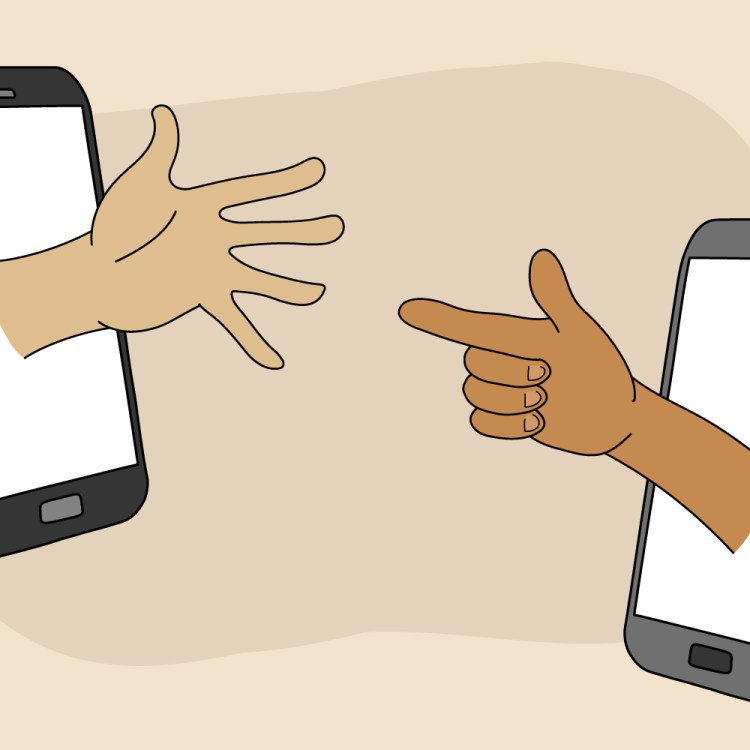A month ago, Jenny’s boyfriend slapped her across the face. In past incidents he’d grabbed her arm and pulled her hair so she couldn’t escape the room. Jenny abided by those violations of personal space, but an outright strike was over the line.
“I had set a boundary pretty early for myself,” Jenny, a pseudonymous 29-year-old bank manager from Toronto, says. “And I’m not good at boundaries, but this is one that I guess I kept.”
She’s since hit him back with a restraining order, and the time away from her now ex — a drug addict and alcoholic — has helped Jenny realize that she’d turned too much of herself over to him. She was wrapped up in what she now describes as a codependent relationship, characterized by her need for validation and a sense of self worth to originate from an unfortunate, irresponsible and destructive presence, who in turn thrived on her vulnerability.
At the beginning of their partnership seven years ago, Jenny, aware of her boyfriend’s substance abuse problems, thought to herself, You can handle it.
Why such confidence? “It was a repeat of the relationship with my father,” she says.
“I was babysitting him when he was drinking or using to make sure that he didn’t hurt himself or hurt others or damage my property,” Jenny says of her ex, though she could’ve just as easily been talking about her dad. “It was constant hypervigilance.”
Jenny extended a similar leash for her maternal figure as well. During Jenny’s childhood, she says her narcissistic mother often arrived home from work angry and stressed. Jenny took it upon herself to do whatever she could to soothe her mother, including washing the dishes, cleaning up after herself and remaining passively silent.
“If she’s happy then I can be happy. Being able to do that gave me a sense of control, too,” Jenny says. “The parentification of a child in that situation really can switch up the wires in someone and makes them feel that taking care of someone is loving them. And that’s kind of where I got stuck.”
The powerful, calming sense of security and safety that comes from such a dynamic can be intoxicating, sometimes spawning its own unique addiction disorder. People like Jenny can even attend group support meetings for this problem, through a 12 Step Alcoholics Anonymous offshoot called Co-Dependents Anonymous, or CoDA for short.
“The 12 Step system, what it really does is help people, first of all, find a community,” says a CoDA volunteer from Poughkeepsie, New York, who I’ll call “Alice.” Simply observing that others struggle with similar issues helps 12-stepping codependents recognize they’re not alone, she adds. “And then it gives us structure and healthy tools used to cope.”
Alice, a 66-year-old, 13-year attendee who helps local meeting organizers deliver CoDA messaging according to official guidelines, likens codependency to flashier addictions like alcohol, food and sex.
In more familiar cases of addiction, people use substances or develop other unhealthy behaviors to pull them out of moments and away from emotions that they have difficulty dealing with. In codependent relationships, the “enabler” is still avoiding foundational concerns and tension points, but doing so while providing constant, attentive care to another person. This sort of behavior, toxic as it is, helps the enabler feel better about themself.
“For example, in a marriage, my spouse might be difficult, uncommunicative,” Alice says. “I can’t think about that. That makes me nervous, like, ‘Oh no, he came home angry; he must be angry at me.’”
Thoughts like these indicate a lack of self esteem in the enabler, which is a key driver of codependency. The enabler generally works to rectify whatever uncomfortable state a person (friend, coworker, or family member) has found themself in, in order to limit discord.
“‘I’m going to do x, y, z because I know that helps him feel better,’” Alice says, continuing her hypothetical thought bubble. “‘I’m gonna make him a steak, I’m gonna pour him a drink, I’m gonna give him a blowjob …’ Whatever it is I need to do to help us be happy.”
But that effort to mitigate tension and stress only generates a cycle of enabling behavior, which the receiver enjoys on some level, and perhaps even encourages.
“It’s nice to be always thinking about your loved one, but when are you going to be in the moment?” says Adam Jablin, 45, a certified life coach who specializes in addiction and recovery.
Though it can come about later and under different circumstances, Jablin says it’s usually parent-child dynamics that cultivate codependency issues in young people. In relatively small doses, he observes, much of a codependent’s behavior is not only perfectly normal, but can represent the manifestation of a strong, ideal relationship.
“If you were to check my phone right now, you would probably think I had some sort of codependency on my daughter and son,” Jablin discloses. During these pandemic days in particular, he’s doing what he can to ensure they’re safe, and sending texts to check in on them while away from home. But his behavior doesn’t ascend to the height of a codependency disorder because, he says, “I’m not seeking my daughter’s approval, I’m not seeking my son’s approval, and I’m not checking in on them to see if, like, ‘Was lunch OK?’”
For this reason and others — including the fact that another human being of free will is helping facilitate the dangerous cycle of behavior — Jablin says codependency addiction is “a killer” and arguably “the hardest addiction to break.”
However, as even the American Society of Addiction Medicine points out in its very definition of “addiction,” the disorder is treatable.
A Seattle CoDA-goer we’ll call Sarah — who at 30 is close in age to Jenny and shares a strikingly similar codependent backstory of a narcissistic mom and alcoholic dad — says her now year-long engagement with the 12 Step program has “improved every single part of my life.”
“I’m so much better at just being in my own body; I’m better at seeing my strengths and my faults in a non-judgemental, kind, loving eye,” Sarah, an educator by trade, says. “I am so much better at not feeding into people’s egos [and] I can see people’s character a lot better.”
Shortly after beginning the program, Sarah’s four-year relationship with her live-in boyfriend briefly ended. But unlike Jenny’s ex and other past boyfriends of her own, he’s never been abusive toward Sarah. The two of them have since worked on their respective selves — Sarah says he lives with ADHD, has experienced trauma and might be codependent, too. They’ve been back together about seven months now, and are considering moving in with each other again.
“We have such a healthier attachment,” Sarah says. “I just couldn’t set boundaries, I couldn’t have healthy communication, I couldn’t have conflict without spinning into a trauma response.”
Echoing Alice’s claim about CoDA — also shared by Jenny — Sarah says the meetings opened her up to a community of support that helped strip away her feelings of isolation. She’s made amends and can deftly refer back to Steps One and Two (about being powerless and the restorative ability of a higher power) when she needs to. She’s also working on other steps, though admittedly having hiccups when it comes to accepting her imperfections without feeling guilt or shame.
Sarah speaks on the topic of CoDA and her growth through treatment with tremendous agility and confidence. It’s no wonder she’s begun to “lead” meetings — a relative term because CoDA groups intuitively don’t have a hierarchical power structure — and started helping attendees, as Sarah says, to not “abdicate their own needs, wants and power to those who are seen as an authority,” as is their wont. There’s literature to be read, like in other 12 Step meetings, including a statement about “crosstalk,” which is forbidden during CoDA group session shares.
“[W]e refrain from asking questions, interrupting, giving feedback or advice, referring directly to another person’s share, calling another person present by name, or making ‘you’ and ‘we’ statements,” says the CoDA website. “Although it may feel awkward at first, experience has shown us that CoDA’s crosstalk guidelines help keep our meetings a safe place.”
Sarah says in her experience such guidelines mean that at CoDA meetings “you can just express yourself in a non-judgemental space, and … it forces you to acknowledge your feelings.” That’s vital, considering codependents typically sidestep them.
If you’ve noticed that the three CoDA-goers I’ve interviewed are all women — which isn’t something I planned, and in fact tried to avoid — it might be because, as some estimate, women constitute up to 80 percent of the total number of people who live with codependency.
And though the term “codependent” gets thrown around constantly in our social discourse, as a catchall for relationship struggles, or as Scientific American wrote, the word now “smacks of pop psychology psychobabble,” both Sarah and the life coach Adam Jablin (who’s a passionate proponent of 12 Step program like CoDA) believe the issue has permeated the Western population far more than its citizens realize.
Through his extensive time working with addicts, Jablin’s seen many initially enlist in a treatment program for some substance, only to realize later that the root cause of their drug abuse was actually relationships with other people. Sarah’s noticed that codependent behavior has virtually been normalized in culture. “It’s in all of our movies and tv shows,” she says. “It’s in all of our romantic films and songs.”
How many movies can you think of where a couple comes together more truly out of desperation as opposed to compatibility? A licensed social worker blogged about such films, citing romcom favorites like Sleepless in Seattle and Jerry Maguire as examples. Meanwhile, Reddit user famous4love, a self-described codependent, built a Spotify playlist that makes Sarah’s latter point pretty apparent.
But count Jenny as a new CoDA devotee, who’s looking forward to continued treatment, enhanced life circumstances, and, eventually, better relationships than the abusive ones she’s tended to slip into.
“It’s been the most validating experience of my life,” Jenny says of her CoDA induction. “Just being able to know that there’s people there who have been going through the same thing … that’s enough for me to feel like I’m worth something.”
No matter how emotional and curvy a ride recovery might be for her, she’ll be welcome at CoDA. As Sarah puts it: “The only requirement for membership in CoDA is a desire for healthy and loving relationships.”
Whether you’re looking to get into shape, or just get out of a funk, The Charge has got you covered. Sign up for our new wellness newsletter today.

